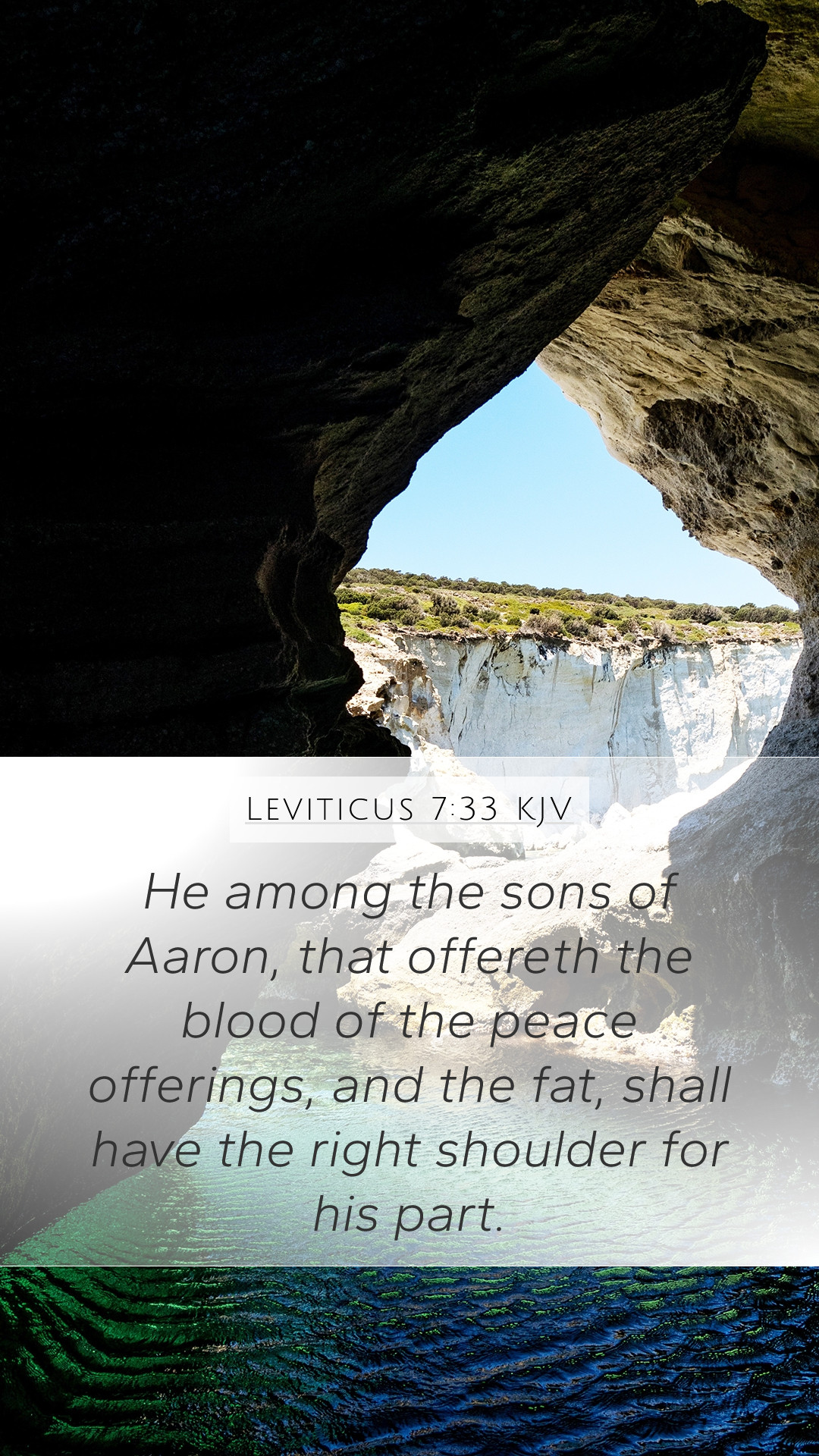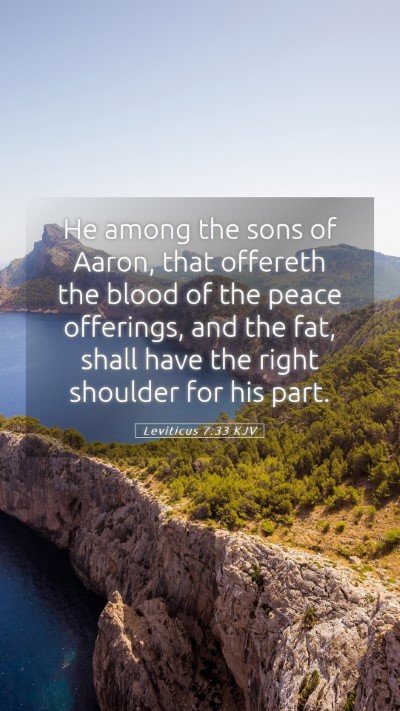Understanding Leviticus 7:33
Leviticus 7:33 states: "The one from among the sons of Aaron, who offers the blood of the peace offerings and the fat, shall have the right thigh as his share." This verse pertains to the regulations surrounding the peace offerings in the tabernacle worship of the Israelites. In examining this scripture, we delve into its meaning with insights drawn from respected public domain commentaries.
Bible Verse Meaning and Interpretations
Various commentaries provide a rich tapestry of understanding regarding this verse:
-
Matthew Henry's Commentary:
Matthew Henry emphasizes that God's allocation of the right thigh to the priests symbolizes the rightful claim that those who minister in holy things have to their portion from the sacrifices made by the people. This allocation serves as a reminder of God’s provision for His servants.
-
Albert Barnes' Notes:
Albert Barnes notes the significance of the “peace offerings” as a means of communion with God. The right thigh, being a prime cut of meat, represents a share in the blessings of the offering given to the priests, who in turn serve the people. This underscores the cooperative relationship between God, the priests, and the community.
-
Adam Clarke's Commentary:
Adam Clarke highlights the symbolic nature of the peace offering, which is characterized by its conviviality—intended for feasting. The priest receiving the thigh signifies that he acts on behalf of the worshiper, bridging the community and the divine.
Significance of the Verse
The significance of Leviticus 7:33 extends beyond the mere allocation of meat to priests. It illustrates key aspects of:
- Divine Provision: God's care for those who serve Him is evident, ensuring that they are provided for through the offerings brought by the faithful.
- Priestly Role: The priests act as intermediaries between God and the people, a theme that resonates throughout the scripture and is foundational to understanding the priestly system.
- Community and Worship: This verse encapsulates the communal aspect of worship, where the act of giving a peace offering leads to a shared meal, symbolizing fellowship among God, the priests, and the congregation.
Application and Reflection
In practical terms, the principles found in Leviticus 7:33 can be applied to modern-day faith communities in several ways:
- Recognizing the importance of supporting those who lead in spiritual matters, ensuring they can dedicate themselves fully to their calling.
- Understanding the role of communal worship and sharing in the blessings of God together as a community.
- Reflecting on the significance of making offerings, not merely as acts of duty but as avenues for nurturing relationships with God and fellow believers.
Cross References
This verse connects with several other scriptural insights:
- Numbers 18:8-10 – Discusses the priests' portion of offerings.
- Deuteronomy 18:1-5 – Outlines the rights of the Levitical priests.
- 1 Corinthians 9:13-14 – Relates to the New Testament understanding of support for ministry.
Conclusion
Leviticus 7:33 offers profound insight into the relationship between God, the priests, and the worshiping community. Through careful study and discernment, we uncover layers of meaning that enrich our understanding of scripture. This analysis serves as an invitation to deeper Bible study and reflection on how ancient principles apply to contemporary faith practices.
For those seeking to explore Bible verse meanings, interpretations, and explanations, the study of verses like Leviticus 7:33 provides valuable lessons and encourages a cohesive understanding of God's word.


